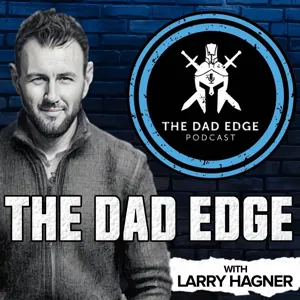Podcast Summary
Maintaining Family Balance During COVID-19: Find ways to create space, communicate openly, and prioritize safety measures to balance family challenges during COVID-19.
Families are facing unique challenges during the COVID-19 lockdown, including stress over sharing space, concerns about remote learning, and fear for essential workers. Dr. Earl Turner, a licensed clinical psychologist and assistant professor at Pepperdine University, advises parents to find ways to create space for each other and maintain open communication about the importance of continuing safety measures like mask-wearing and social distancing as some areas begin to reopen. It's essential to reassure children that these practices are necessary to protect their health and limit the spread of the virus. Additionally, Dr. Turner suggests that families explore options for safely expanding their social circles, such as sharing space with other families, while continuing to prioritize safety. Overall, the key is to maintain open communication and find creative solutions to the challenges of sheltering in place during uncertain times.
Balancing social connections and virus prevention: Maintain physical distancing, wear face coverings, and practice handwashing. Consider the 'double bubble' concept for socializing, but weigh potential risks carefully. Communicate openly with family members about safety measures and plan for their return.
While maintaining physical distancing, wearing face coverings, and practicing handwashing are crucial measures to prevent the spread of the virus, the importance of social connections and relationships cannot be overlooked. However, the introduction of the "double bubble" concept, where two families join together for socializing, presents a complex situation. While it offers benefits such as personal connection and easier relationship building compared to virtual meetings, the potential risks of virus exposure need to be carefully considered. For families with essential workers, managing children's anxiety regarding their parents' safety measures can be challenging. Open communication and having a clear plan for returning home can help alleviate their concerns. Ultimately, it's essential to balance the benefits and risks of various measures and make informed decisions based on the current understanding of the virus's transmission.
Managing Kids' Fears and Emotions During Pandemic: Limit media consumption, monitor social media access, talk about losses, be vigilant for signs of depression and anxiety, and seek professional help if needed.
Parents play a crucial role in managing their kids' fears and emotions during the pandemic, especially in the face of constant exposure to COVID-19 related news and information. Limiting media consumption and monitoring social media access can help reduce anxiety. If a family has experienced a loss, it's essential to talk about it and celebrate the life of the deceased person to facilitate a healthy grieving process. Additionally, children may exhibit signs of depression and anxiety, such as clinginess, sleep disturbances, and talks about death or hopelessness. Parents should be vigilant and consider reaching out to mental health professionals if they notice such signs. A recent study from China highlights the potential risks of depression and anxiety in children due to prolonged lockdowns. Staying informed and attentive to children's emotional well-being can help mitigate the negative impacts of the pandemic on their mental health.
Engaging children in safety practices creatively during COVID-19: Creatively involving kids in handwashing, using media to explain news, and monitoring screen time can help families navigate pandemic challenges.
During the COVID-19 pandemic, finding creative ways to engage children in safety practices, such as turning handwashing into a song or game, can help them remember important steps and reduce anxiety. For multicultural families, the pandemic presents unique challenges, particularly for those with multi-generational households, where physical distancing guidelines can be difficult to follow. Parents may consider scaffolding their children's screen time by watching TV and playing online games with them to help them understand news coverage and manage potential anxiety. However, it's important to be mindful of the physical effects of excessive screen time.
Supporting children during remote learning and social isolation: Encourage a balance of learning and fun screen activities, set limits, seek mental health resources, and celebrate milestones at home.
Parents can take a proactive approach to help their children navigate the challenges of remote learning and social isolation during the pandemic. This includes encouraging a mix of educational and enjoyable screen activities, setting limits, and seeking resources for mental health support if needed. For older children missing out on milestone events, parents can try to celebrate these achievements at home and involve their children in planning alternative ways to mark the occasion. Many organizations and insurance providers offer reduced or no-cost mental health services, and reputable websites like the American Psychological Association provide helpful guides for managing anxiety, depression, and behavioral challenges. Remember, it's important to involve children in decision-making and celebrate their achievements in ways that are meaningful to them.
Adapting to Changes in Education and Work During the Pandemic: Schools adjust to smaller classes and shorter days, requiring parents to adapt work schedules. Mental health concerns rise, but psychological first aid offers resources for recognizing signs of distress and coping strategies.
The COVID-19 pandemic is leading to permanent changes in the way we live, work, and learn. Schools are adapting to smaller class sizes and shorter school days, which may require parents to adjust their work schedules. Mental health is a significant concern, with some experts predicting a mental health pandemic as a result of the crisis. Psychological first aid, a concept originally developed for disaster response, can help mitigate these impacts by providing resources for recognizing signs of psychological distress and coping strategies. The pandemic is likely to continue to present challenges, but psychological support can help individuals navigate these difficult times.
Recognizing and Responding to Early Signs of Anxiety and Stress During the Pandemic: Recognize early signs of anxiety and stress, practice self-care, stay productive, and seek resources for mental health support during the pandemic.
During the COVID-19 pandemic, it's crucial to recognize and respond to early warning signs of anxiety and stress, such as muscle tension and breathing difficulties. By taking breaks and practicing self-care, we can mitigate the risk of mental health challenges. Furthermore, the pandemic has shown us that we can be productive and resilient, even in uncertain times. Employers may continue to offer remote work options, demonstrating the flexibility and adaptability of individuals and society as a whole. For more resources and support, visit the American Psychological Association's website at apa.org. Remember, taking care of your mental health is essential, especially during challenging times.






